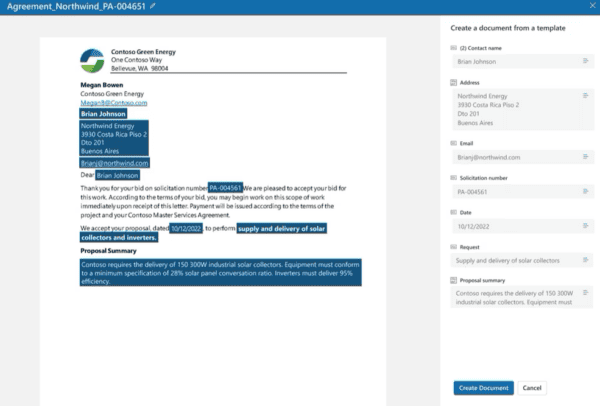Finding the right information has long been a major challenge
for companies. Overall, an information Worker spends an average of
26 per cent a day looking for information. That implies a lot of
potential in optimizing the process of search. Search technologies
aim to solve this problem. Unfortunately search results are mostly
below expectations. The reason is not the search technology per se,
but the quality of data to be searched. The following topics cause
considerable problems:
– Knowledge is not explicitly available. Important information
is not explicitly captured but available in various documents.
– Information is very rugged. Various documents with information
are in physically different locations and in different structures.
There are documents, blog and forum posts with unstructured content
or applications and databases with structured information, which
all contain relevant information about a single topic, but do not
represent an overall picture.
– A large part of knowledge is only in minds. This knowledge,
which constitutes a significant part, is not detectable by a search
technology. But this knowledge is necessary to achieve the target
of the most effective and efficient use of knowledge.

To address these issues two essential conditions must be
created. First, the user must be empowered and encouraged to
capture his knowledge.
Information describing If you managed to capture as much
information as possible, you have to face further challenges.
Information is often captured and stored inconsistently. No search
technology can create an overall picture, when content is captured
somehow and somewhere.This is where metadata comes into play.
Metadata is structural information about particular content. Modern
content management systems like SharePoint 2010 help to manage
knowledge. By using metadata, articles and documents are easier to
find and can be published group-specific. The problem is that
metadata is tagged manually by the user.
different tags for the same subject or similar tags for different
topics. The Term store helps to manage this problem by using
defined standard metadata (Taxonomies). Taxonomies will restrict
the choice of metadata to guarantee a more consistent tagging of
content. By using metadata available knowledge is easier to find.
Consistent tagging enables e.g. a refining of the search and
document results.
Despite the advanced onboard-tools, major problems remain in
SharePoint 2010. The reason is that content is tagged manually,
which leads to inconsistent or heterogeneous data or will not even
be used. A completely blank form with a request to enter metadata
often causes no or not well thought-out metadata to be entered.
Furthermore the term store does not solve the problem of
inhomogeneous metadata. Especially increasing amounts of
information are making it difficult to find the right metadata,
because it increases the probability that content will not
completely be tagged and that it increases the costs of searching
for certain information.
This is exactly the point where the automatic and semi-automatic
tagging of content comes into play. beyCoo for SharePoint enhances
the capabilities of SharePoint 2010 by using an automatic
enrichment of suitable metadata. After
importing content, beyCoo automatically extracts relevant
information and generates suitable metadata that is tailored to
individual needs of the enterprise.
Content Enrichement with beyCoo for SharePoint
beyCoo for SharePoint is a web service that structures
unstructured content such as texts, web pages, office documents or
PDF`s by enriching the original content with additional
information. It extracts a set of standard terms like persons,
locations, companies or communication data. Furthermore beyCoo can
be customized by extracting individual or corporate terms. beyCoo
is called up via a Web Service and via an existing Plug-in within
SharePoint 2010 (beyCoo for SharePoint). By using a
transaction-based payment model, beyCoo facilitates the semantic
content expansion easy and economical.











